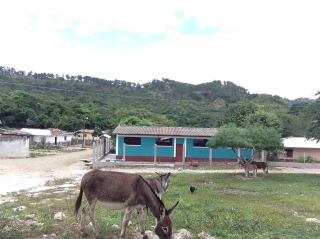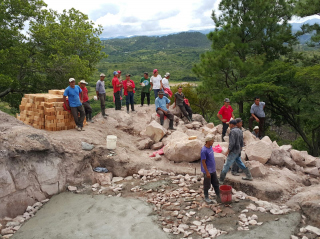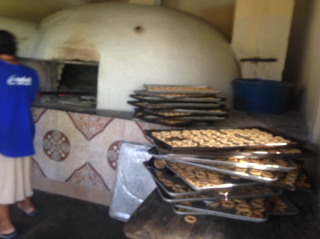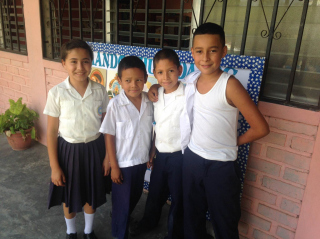El Espinito, Honduras
![]()
![]()
![]()
![]()
![]()
![]()
![]() Click on Programs to learn more about their work in this community
Click on Programs to learn more about their work in this community
General Information
| Population* | 350 |
| Number of homes | 104 |
| Avg # of people per home | 3 |
| Primary Occupations | Agriculture (corn, beans, sorghum) |
| Water System | In Progress |
| Community Bank | Yes |
| Electricity | Yes |
| Corresponding Health Center & Distance | San Matías (4km away) |
| Common Illnesses | Respiratory infections, diabetes, hepatitis, dengue |
| School Access and Distance |
Kindergarten - 9th grade - In-community |
| Municipality | San Matías |
| Department | El Paraíso |
| Distance from compounds | 1 hour 30 minutes |
* Population does not reflect how many patients will be seen on medical
brigades as many people from surrounding communities come seeking
Medical Brigades medical attention.
Top Needs Expressed
The top needs expressed by the community members are public health infrastructure and economic development.
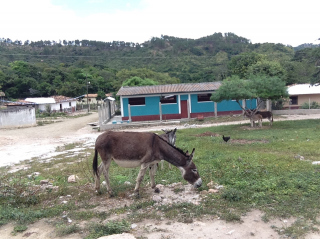
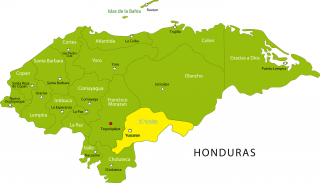
El Espinito is a mid-sized community located in the department of El Paraíso. It lies at a relatively low altitude, so it is quite warm during the day and cooler in the evening.
Unlike in most other rural communities, children of the El Espinito have acces to attend school through 8th grade, and alternative schooling is available in the community center through high school levels. Each grade is not taught separately, however, as the school only has three classrooms. Community teachers are very proud of their students and comment that they are extremely attentive, often showing up to class before the teacher.
Until now, there has been no functioning centralized water system in El Espinito. While the government constructed a system several decades ago, it has since stopped working and community members have needed to obtain water from two wells for nearly 13 years.
As the water from the wells is not treated, community members should treat it at home before consuming it. However, this is not the norm and the community struggles with water-borne disease.
A strong partnership between Global Brigades, community leaders, World Vision, and local government will complete the new water project in El Espinito. Community Leaders will organize community participation and payments, World Vision donated the water pump, the municipality installed electricity and will pay for the distribution line, and Global Brigades will be providing the 15 thousand gallon tank, will train the water council, and train the plumber.
Like most rural communities, El Espinito does not have a health center. The closest one is in San Matías, which is about 4 kilometers or 2.4 miles away. This is about a 40 minute walk for community members. The health center rarely has medication.
Most families do not have adequate Public Health infrastructure. Only 50% of homes have latrines, leading to high rates of parasites and fecal disease. Approximately 60% of homes have water storage units, meaning that many do not have enough water to follow basic hygiene and santitation practices. Almost 90% of homes have eco-stoves due to other organizations operating in the community. Finally, the majority have cement floors, preventing fungal infections and Chagas Disease.
Given the lack of healthcare and infrastructure, diseases like respiratory infections, diabetes, hepatitis, chikungunya, and dengue are prominant.
The majority of community members in El Espinito grow corn, beans, and sorghum. The majority of the crop is for sustenance although excess crops are often sold. Most agricultural workers make about 100 lempiras (about $5) a day during the rainy season. Regardless of occupation, most families earn approximately 4,000 lempiras per month (approximately $180). Almost all household income is used to purchase food for consumption.
Community leaders established a community bank several years ago. It is currently functioning well. One local business is owned by Juana Valladares (51), who employes over 10 individuals to sell rosquillas, a traditional Honduran pastry.
The community of El Espinito is well-organized. There is active community leadership through the Patronato as well as a Water Council and Community Bank. The community also works with numerous non-governmental organizations including World Vision and Proderco.
ddd
